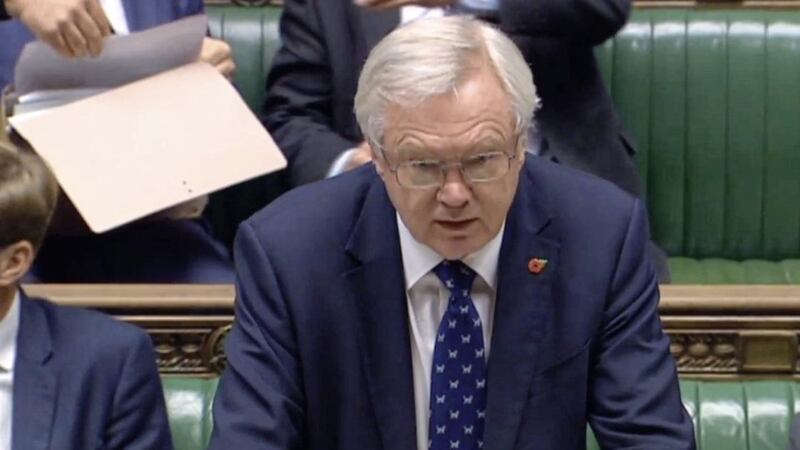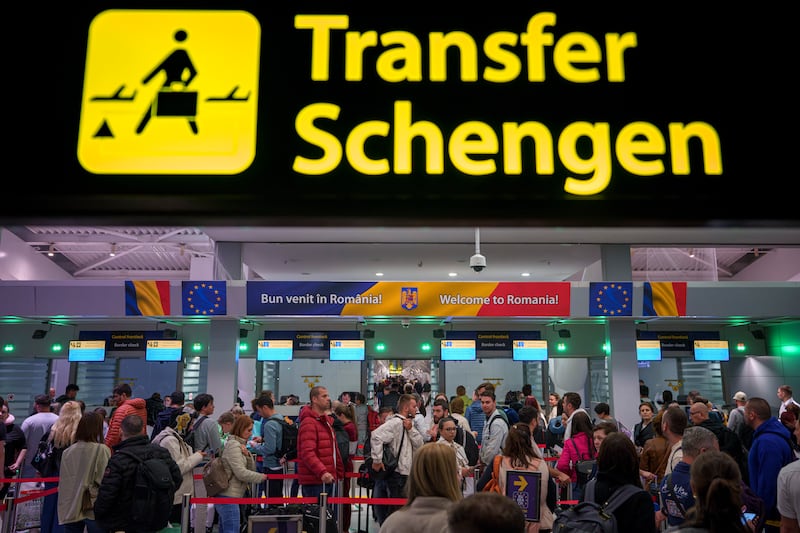THE UK will still leave the European Union if MPs vote down the final Brexit deal, David Davis has said.
The British government's Brexit secretary announced yesterday that Westminster would be given a vote on the proposed deal before the UK leaves the EU.
But Mr Davis said voting against the Withdrawal Agreement and Implementation Bill would not stop an exit from Europe.
Some MPs branded the announcement "worthless" and a "sham" if ministers could not be asked to renegotiate.
Mr Davis said the British government recognised the need to provide "clarity and certainty" on implementing any Brexit deal into UK law.
MPs heard that the bill, if approved, would ensure major policy of the Brexit agreement is enshrined via primary legislation.
But asked if the UK would still leave the EU as planned on March 29 2019 if parliament votes against the bill, Mr Davis replied: "Yes."
Labour former minister Chris Leslie later asked: "Hasn't (Mr Davis) just given the game away of what a sham offer this is?
"(Mr Davis) has to do much better than this. Parliament must have a say on that withdrawal agreement before we are thrown over the cliff edge."
Mr Davis said the withdrawal agreement would probably be concluded in the "latter part of next year", with the EU aiming for October.
He went on: "If we do that, then the withdrawal and treaty vote will come to the House, the simple in principle vote, then as soon as possible thereafter the withdrawal agreement bill will come in front of the House.
"That's the sequence and that will leave plenty of time and amended at the time."
Meanwhile, the Republic's foreign minister Simon Coveney has said the DUP's pact with the Conservatives should not limit the British government's options in the Brexit negotiations.
Speaking in Brussels, he told RTÉ: "I don't accept the options should be limited on the basis of the political arithmetic in the House of Commons.
"That is not how a decision as fundamental and as important to Ireland's future and Britain's future should be made."
At Westminster, shadow Northern Ireland secretary Owen Smith said ministers should consider a "special arrangement" for Northern Ireland allowing it to remain in the European customs union after Brexit.
He said the idea was "one that we ought to be absolutely considering" given the lack of credible proposals so far on the issue of the border.
In another development, an academic study has suggested constitutional change in the UK is "almost unavoidable" if a Brexit deal seeks to accommodate the aspirations of Scotland and Northern Ireland.
Scotland and Northern Ireland continuing in the single market and customs union would entail a customs border and border checks within the UK, the paper says.
It would also involve changes to the devolution arrangement to allow both regions to take part in the political and constitutional life of the EU and the European Economic Area.
Dr Nikos Skoutaris of the University of East Anglia, who produced the paper, said the UK could become "almost a confederation".
He added: "In any case, both the current UK and EU constitutional frameworks somehow seem to be unable to accommodate the very different aspirations of the UK constituent nations.
"In this sense, their significant amendment is almost unavoidable."








